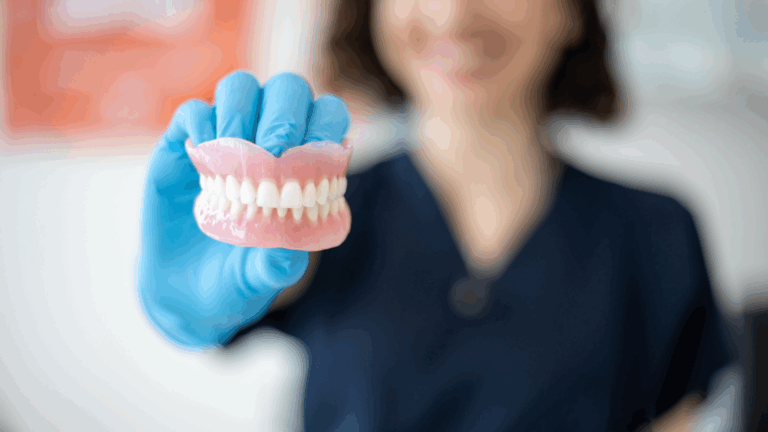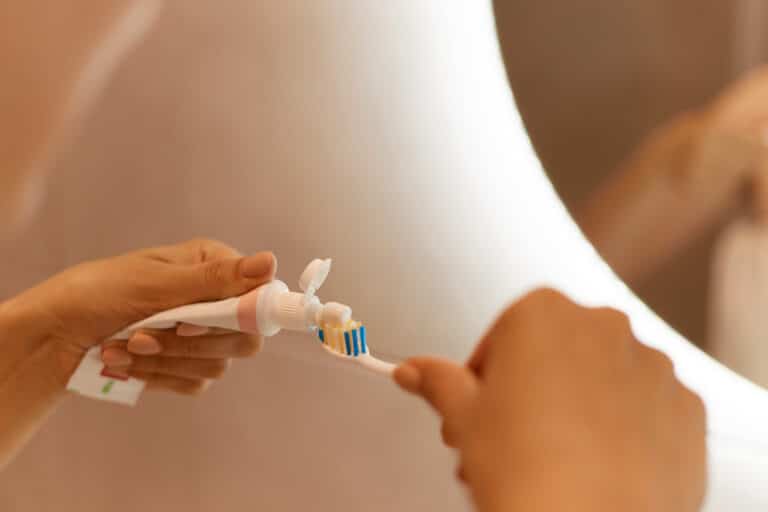Experiencing pain or discomfort related to your wisdom teeth? Or perhaps you’re concerned about potential issues they might cause? Understanding the role of X-rays in diagnosing and treating wisdom teeth problems is crucial. At WeSmile Dental Care, we offer comprehensive wisdom tooth consultations, including X-rays, to help you make informed decisions about your oral health.
Why are teeth X-rays necessary?
X-rays are an essential tool in dental care, especially when it comes to wisdom teeth. They provide a clear image of the position, alignment, and overall health of your teeth and jawbone, allowing your dentist to detect issues that may not be visible during a regular examination. For wisdom teeth, full-mouth X-rays provide a comprehensive view of the entire mouth.
Detecting impacted wisdom teeth through X-rays
Impacted wisdom teeth can cause pain, swelling, and infection. X-rays help identify these teeth that haven’t fully emerged from the gum line. Without X-rays, these impacted teeth might go unnoticed until they cause significant problems, such as infection or damage to adjacent teeth.
Identifying tooth decay and cavities through X-rays
Even if your wisdom teeth have partially erupted, they are prone to decay and cavities. X-rays reveal these problems early on, allowing for timely treatment before they worsen. Wisdom teeth are particularly susceptible to decay because their position at the back of the mouth makes them harder to clean effectively.
Assessing the alignment of teeth through X-rays
Wisdom teeth can push other teeth out of alignment, causing crowding and shifting. X-rays help assess the overall alignment and plan for necessary adjustments. This is important not only for the health of your wisdom teeth but also for maintaining the alignment of your entire mouth, which can affect your bite and overall oral health.
Evaluating the health of surrounding bone and tissues through X-rays
X-rays provide a clear picture of the bone density and any potential damage or infection in the surrounding tissues. This is crucial for planning any surgical procedures and ensuring that your jawbone is healthy enough to support dental work.
Planning for extraction or surgery through X-rays
X-rays are crucial in planning the safest and most effective way to remove problematic wisdom teeth, minimising risks and complications. They allow the dentist to see the exact position of the teeth and any potential obstacles, such as nerves or other teeth, that could complicate the extraction.

CT scan vs. X-ray: Are X-rays enough to determine the state of your wisdom teeth?
While CT scans offer detailed 3D images, X-rays are usually sufficient for assessing wisdom teeth. X-rays provide clear and detailed images that can help your dentist determine the position and condition of your wisdom teeth. Here are the differences:
X-rays: Efficient, cost-effective, and provide sufficient detail for most wisdom teeth evaluations. They are quick and expose patients to minimal radiation. Suitable for routine check-ups and initial assessments.
CT scans: Used for complex cases or surgical planning, offering comprehensive 3D views. They provide more detailed images but are more expensive and involve higher radiation exposure. Typically reserved for cases where more detailed anatomical information is required.
What is your dentist looking out for when they look at your wisdom teeth X-ray?
Your dentist examines the X-ray to identify several critical factors that influence your wisdom teeth’s health and treatment plan. X-rays are key in determining if you require either a wisdom tooth extraction or a surgery:
 Impacted teeth: Wisdom teeth that fail to emerge fully or correctly can cause pain and infection. Identifying impacted wisdom teeth early allows for timely intervention.
Impacted teeth: Wisdom teeth that fail to emerge fully or correctly can cause pain and infection. Identifying impacted wisdom teeth early allows for timely intervention.
Angulation and alignment: The direction in which wisdom teeth grow can affect nearby teeth. X-rays help determine if the teeth are growing sideways, tilted, or properly aligned.
Presence of cavities or decay: Wisdom teeth are susceptible to cavities due to their location and difficulty in cleaning. Early detection prevents further damage.
Condition of surrounding bone and tissues: Assessing bone density and identifying any cysts or tumours is crucial for overall oral health.
Signs of infection or cysts: Infections and cysts can develop around impacted wisdom teeth, leading to severe complications if left untreated.
What are the first signs of wisdom teeth coming in?
 Recognising the early signs of wisdom teeth can help you plan your visit to the dental clinic for an X-ray and consultation, so you can get professional advice and avoid complications.
Recognising the early signs of wisdom teeth can help you plan your visit to the dental clinic for an X-ray and consultation, so you can get professional advice and avoid complications.
- Swelling and tenderness in the back of the mouth
- Pain or discomfort in the jaw
- Redness or swelling of the gums
- Difficulty opening the mouth or chewing
- Bad breath or unpleasant taste
- Feeling pressure or crowding of other teeth
It’s crucial to get an X-ray when you’re experiencing these signs to prevent potential issues and manage existing problems effectively. Regular dental check-ups should include an X-ray, especially if your wisdom teeth have not been previously evaluated. If you’ve already had a wisdom tooth removed, an X-ray can help ensure proper healing and identify any complications.
Learn more about all things wisdom teeth here.
Wisdom tooth extraction vs. surgery
These two procedures both remove your wisdom teeth, but they are not the same. Dentists will determine where you require a surgery or extraction based on your wisdom teeth X-ray. Understanding the difference between a simple extraction and surgical removal is essential for making informed decisions.
Wisdom tooth extraction 
Wisdom tooth extractions are generally performed when the tooth has fully erupted and is accessible. This procedure is straightforward and involves numbing the area before removing the tooth. The dentist uses specialised tools to loosen and remove the tooth from its socket. This procedure usually has a shorter recovery time and fewer complications, making it ideal for wisdom teeth that have grown in properly and are easy to access.
Preparing for your wisdom teeth extraction? Here’s some things to know for a smoother recovery
Wisdom tooth surgery
Required for impacted teeth that haven’t fully emerged or are positioned awkwardly, based on the X-ray. This involves making an incision in the gum to access and remove the tooth. Surgical removal is more complex and may require stitches to close the wound. Recovery time is longer, and there may be more post-operative care required. This procedure is necessary when the wisdom teeth are trapped beneath the gum line or growing at an angle that makes them difficult to extract through a simple procedure.
The complexity of the extraction or surgery depends on the position and the condition of the wisdom teeth. Surgical removals generally require longer recovery times and may involve more post-operative care, such as managing swelling, preventing infection and removal of stitches. Both procedures carry risks, but surgical extractions have a higher potential for complications due to the invasive nature of the procedure. Your dentist will inform which procedure is more ideal for your wisdom teeth while keeping the risks as low as possible.
The critical role of X-rays in wisdom teeth health
Wisdom teeth X-rays are a critical diagnostic tool that help in assessing and managing wisdom teeth potential issues effectively. At WeSmile Dental Care, we provide comprehensive consultations and expert advice to ensure your oral health is in top condition.
If you’re experiencing any symptoms or have concerns about your wisdom teeth, book an appointment with us for a professional evaluation. Don’t wait for the pain to become unbearable—take action now and secure your oral health for the future. We’re here to ease your worries and keep your smiling for the long run.
FAQs
How much do X-rays cost in Singapore?
The cost of dental X-ray depends on what type of X-ray is performed, and they typically range from $30 to $300. However, X-rays are CHAS deductible, depending on your card tier. In addition, you may check with your dental insurance provider to see if X-rays are covered under your plan. Some plans may cover part or all of the cost.
What to prepare before a dental X-ray
Preparing for a dental X-ray is simple, but there are a few steps to ensure a smooth process.
- Inform your dentist of any medical conditions or allergies
- Remove any jewellery or metallic items
- Wear comfortable clothing
In which cases are X-rays not advisable?
While X-rays are generally safe and an important diagnostic tool, there are certain groups of people for whom X-rays may not be recommended or require special precautions:
Pregnant women: X-rays are typically avoided during pregnancy, especially in the first trimester, due to the potential risk to the developing foetus. If an X-ray is necessary, special precautions such as lead aprons may be used to minimise exposure.
People with certain medical conditions: Individuals with specific health conditions, such as thyroid disorders, may need to take additional precautions or avoid X-rays. It’s important to inform your dentist of any medical conditions so they can determine the best approach.
Children: While X-rays are safe for children, dentists may limit their use to minimise exposure to radiation. X-rays for children are usually only taken when absolutely necessary and with appropriate protective measures in place.
Patients with frequent X-ray exposure: Those who have had multiple X-rays in a short period may need to wait before having another to reduce cumulative radiation exposure. Your dentist will consider your X-ray history and overall health before recommending additional X-rays.


